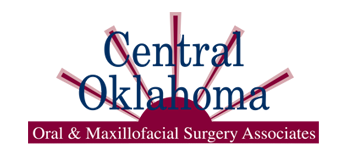Misaligned jaws can cause a number of problems. This issue can negatively affect your ability to chew and speak properly and it can also increase your risk of damage to the teeth or the soft tissues of the mouth. Fortunately, corrective jaw surgery can be helpful in addressing this issue.
Corrective jaw surgery might target a number of different issues with the jaw and can be needed when orthodontic approaches alone will not suffice. If you are considering jaw surgery, it will be helpful to know what to expect from the treatment process.
Issues That Might Require Corrective Jaw Surgery
Our facial structures are influenced by a variety of factors, such as genetics and nutrition. As our jaws grow and develop, these factors may contribute to any number of issues that can arise and negatively affect the positioning of the jaw, such as:
Corrective jaw surgery might target a number of different issues with the jaw and can be needed when orthodontic approaches alone will not suffice.
- Open bites
- Overbites
- Underbites
- Crossbites
- Undersized jaw/severe crowding
- Congenital issues
In some cases, an orthodontist may be able to use appliances to redirect the jaw’s development. However, in other situations, such as when jaw growth is complete and can no longer be manipulated, an oral surgeon will need to perform corrective jaw surgery.
What To Expect From Corrective Jaw Surgery
Corrective jaw surgery is a valuable tool for improving the appearance and functionality of your smile. As you prepare for this treatment process, it can be helpful to know what to expect.
You’ll begin by consulting with an oral surgeon, who will evaluate your case and gather the information needed to plan for the procedure. At this time, the surgeon will be able to give you a more detailed depiction of what your surgery will look like and how you can prepare for it.
Many types of corrective jaw surgery can be performed in outpatient settings, and patients can often begin to resume routine work and school activities within a week or two. Other adjustments, such as dietary changes and exercise restrictions, will last longer.
To ensure a smooth recovery, you should closely follow all of your surgeon’s instructions for post-operative home care. Doing so will minimize your risk of complications.
To learn more about corrective jaw surgery and how it might benefit you, visit our office for a consultation. We can discuss your treatment goals and provide examples of the kinds of results that can be achieved through this intervention.
